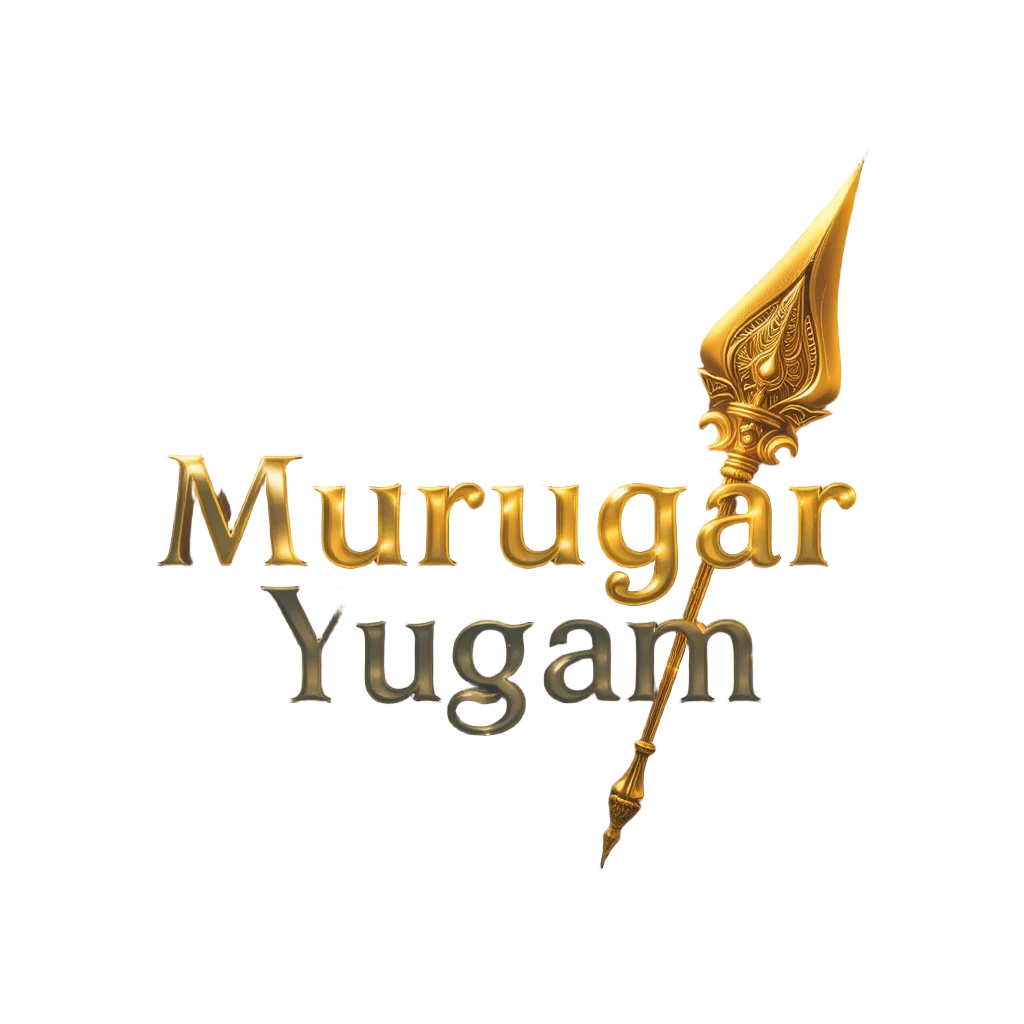About Lord Murugan
Introduction
Lord Murugan, also known as Kartikeya, Skanda, Subramanya, and by numerous other names, is one of the most revered deities in Hinduism, particularly in South India. He is the god of war, victory, wisdom, and love, and is worshipped as the commander of the divine armies and the destroyer of evil forces.
Murugan is the son of Lord Shiva and Goddess Parvati, and the brother of Lord Ganesha. His birth and exploits are described in various Puranas, with the Skanda Purana being particularly dedicated to his legends.
Iconography
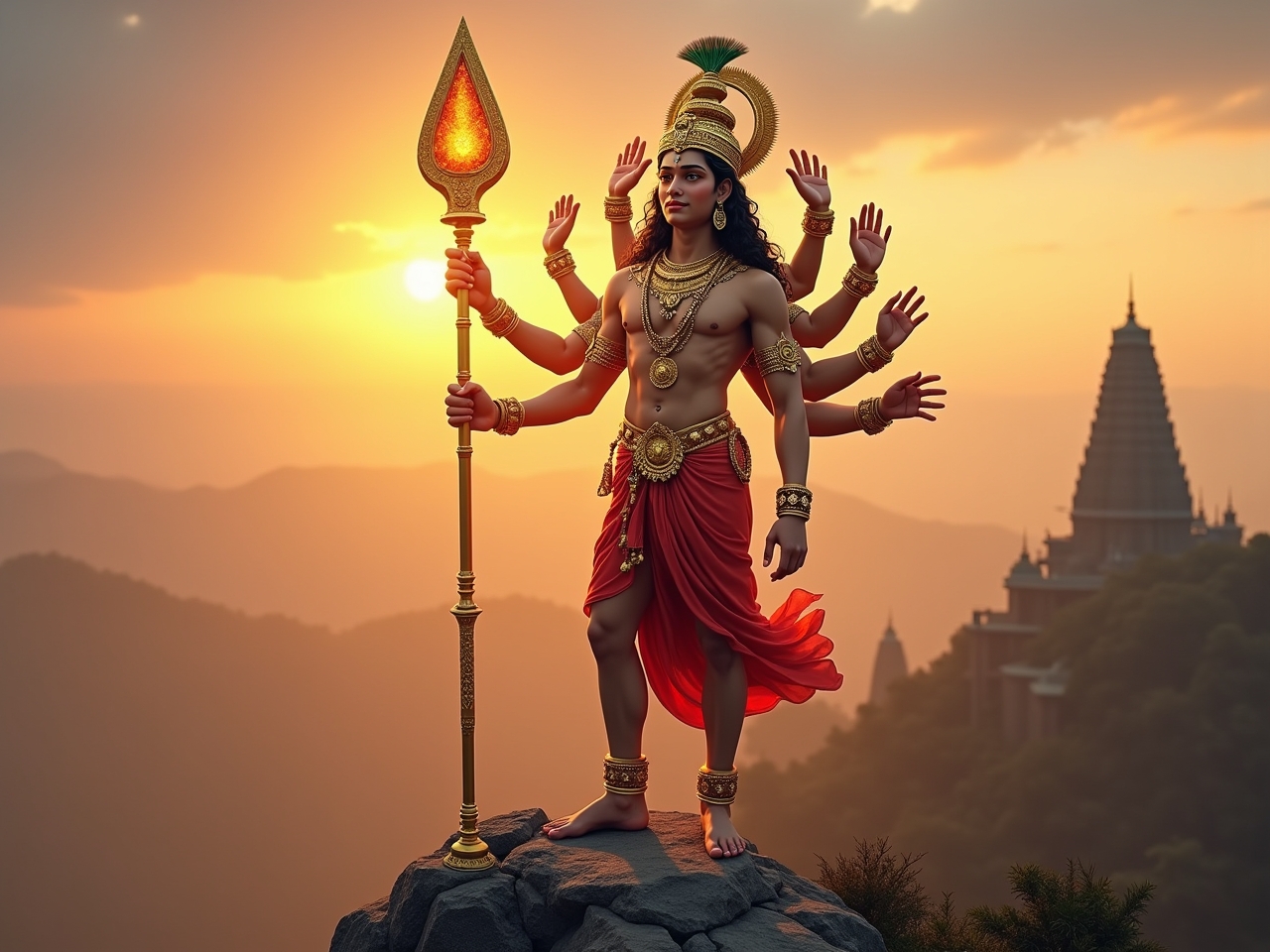
The Vel (Divine Spear)
The Vel is Lord Murugan's primary weapon, given to him by his mother Parvati. It represents wisdom, power, and the destruction of ignorance. The Vel is not just a physical weapon but a symbol of spiritual awakening and the piercing of ego and illusion.
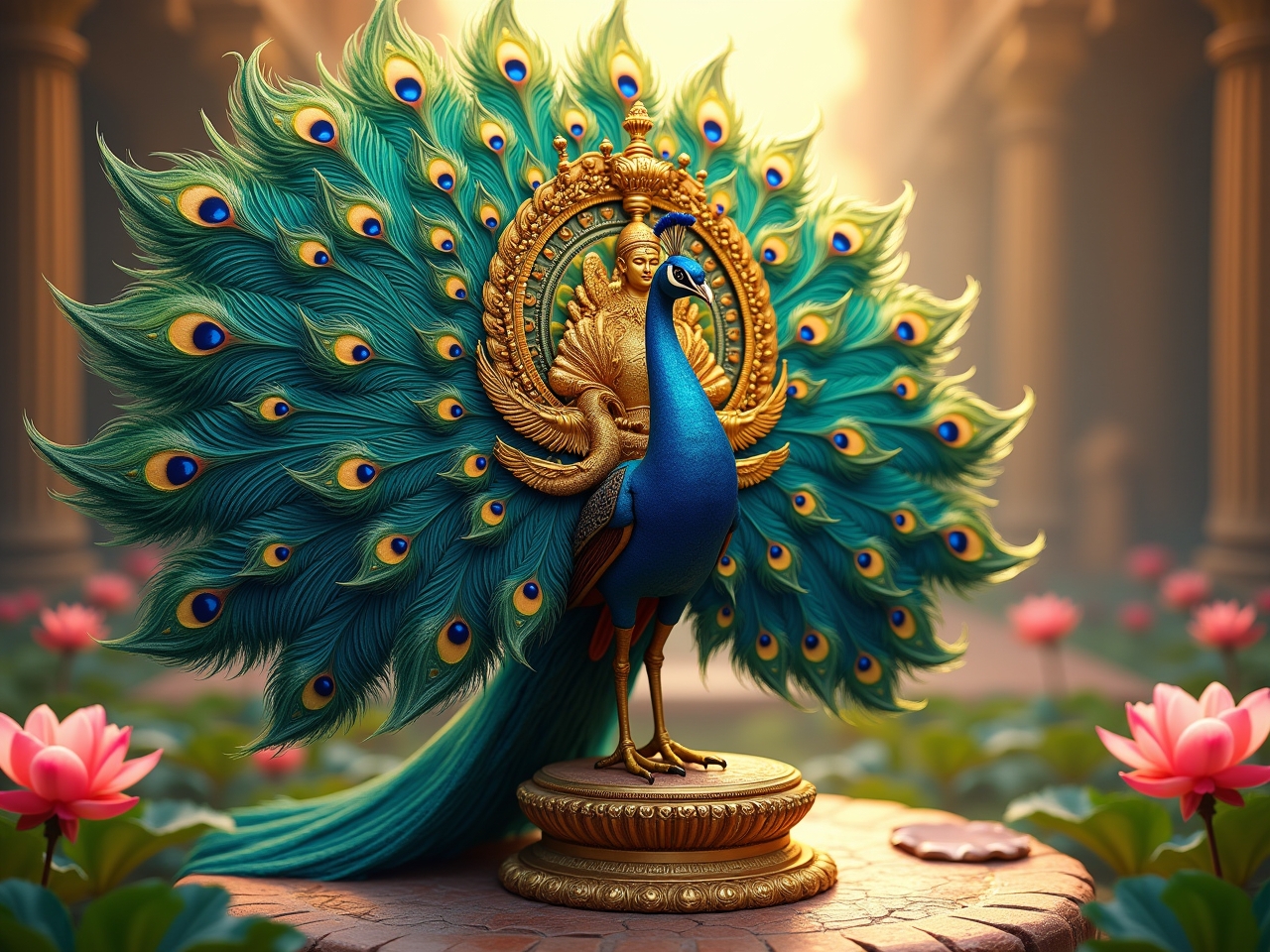
Peacock Vehicle
Lord Murugan rides a peacock named Paravani. The peacock symbolizes the destruction of harmful habits and the ability to live without attachments. The peacock's ability to eat poisonous snakes represents transforming negative energy into spiritual wisdom.
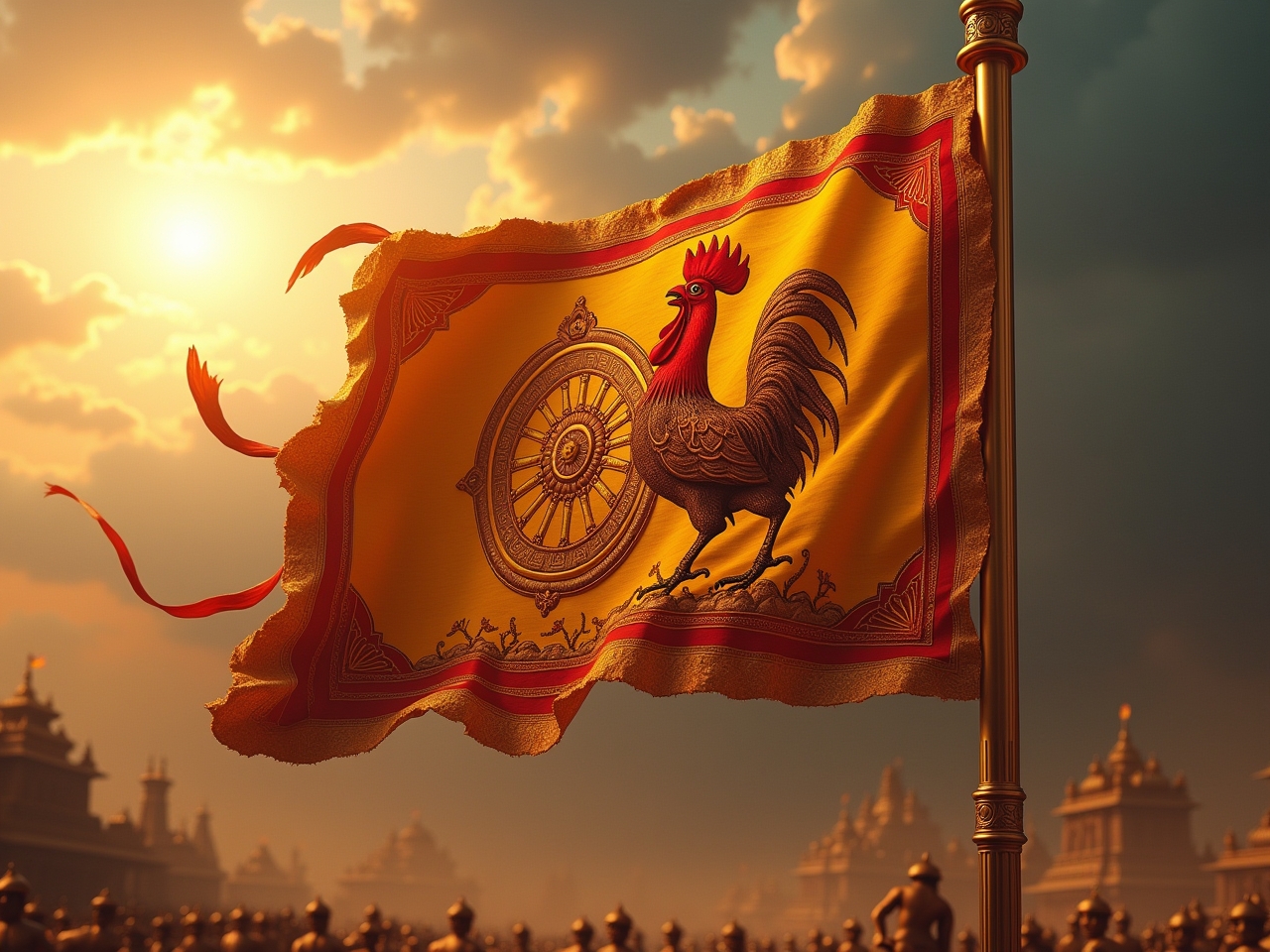
Cock Flag
Murugan's flag depicts a rooster (Kukkutam), which symbolizes the dawn of wisdom and the awakening of spiritual consciousness. The rooster's crow heralds the dispelling of darkness and ignorance, much like spiritual knowledge dispels the darkness of illusion.
Names and Forms
Lord Murugan is known by many names, each reflecting different aspects of his divine nature:
Murugan
Meaning "the beautiful one" or "the youthful one" in Tamil, emphasizing his eternal youth and beauty.
Kartikeya
Named after the Krittikas (Pleiades), the six mothers who nursed him after his birth.
Skanda
Meaning "attacker" or "leaper," referring to his role as the commander of the divine armies.
Subramanya
Meaning "dear to the Brahmins" or "the auspicious one," highlighting his wisdom and divinity.
Shanmukha
Meaning "six-faced," referring to his birth with six faces to feed from his six mothers.
Dandayudhapani
Meaning "the one holding the staff," his form in Palani where he holds a staff instead of the Vel.
Legends and Stories
The Birth of Murugan
According to the Skanda Purana, the gods approached Lord Shiva for help against the demon Surapadma who was terrorizing the worlds. From Shiva's third eye emerged six sparks of fire which were carried by the fire god Agni and deposited in the Ganges river. The six sparks became six babies who were nursed by the six Krittika stars (Pleiades). Later, Goddess Parvati merged the six babies into one with six faces, thus creating Shanmukha (six-faced) Murugan.
The Battle with Surapadma
The primary legend associated with Murugan is his battle with the demon Surapadma. After rigorous penance, Surapadma had gained immense power and was wreaking havoc. The gods appointed the young Murugan as their commander-in-chief. After a fierce battle, Murugan split the demon into two with his Vel. The demon transformed into a mango tree and a peacock. Murugan took the peacock as his vehicle and the rooster from the demon's flag as his own emblem.
Murugan and Ganesha
A popular story tells of a competition between Murugan and his brother Ganesha to circumambulate the world. While Murugan set off on his peacock, Ganesha simply walked around his parents Shiva and Parvati, declaring that they were his world. This story highlights the importance of devotion to parents and the wisdom of Ganesha.
Significance in Hinduism
Lord Murugan holds a special place in Hindu tradition, particularly in South India where he is considered the patron deity of the Tamil people. His worship dates back to ancient Tamil literature like the Sangam texts (circa 300 BCE - 300 CE).
God of War and Victory
Murugan represents the divine warrior who destroys negative forces and protects dharma (righteousness).
God of Wisdom
He is considered the guru who bestows spiritual wisdom, as seen in his role explaining the meaning of "Om" to Shiva.
God of Love
His marriages to Devasena and Valli represent the union of divine and human love, and the importance of devotion.
Mountain God
His association with hills and mountains (like Palani) connects him to nature and ascetic traditions.
Worship and Festivals
Lord Murugan is worshipped with great devotion, especially in Tamil Nadu. Some of the major festivals dedicated to him include:
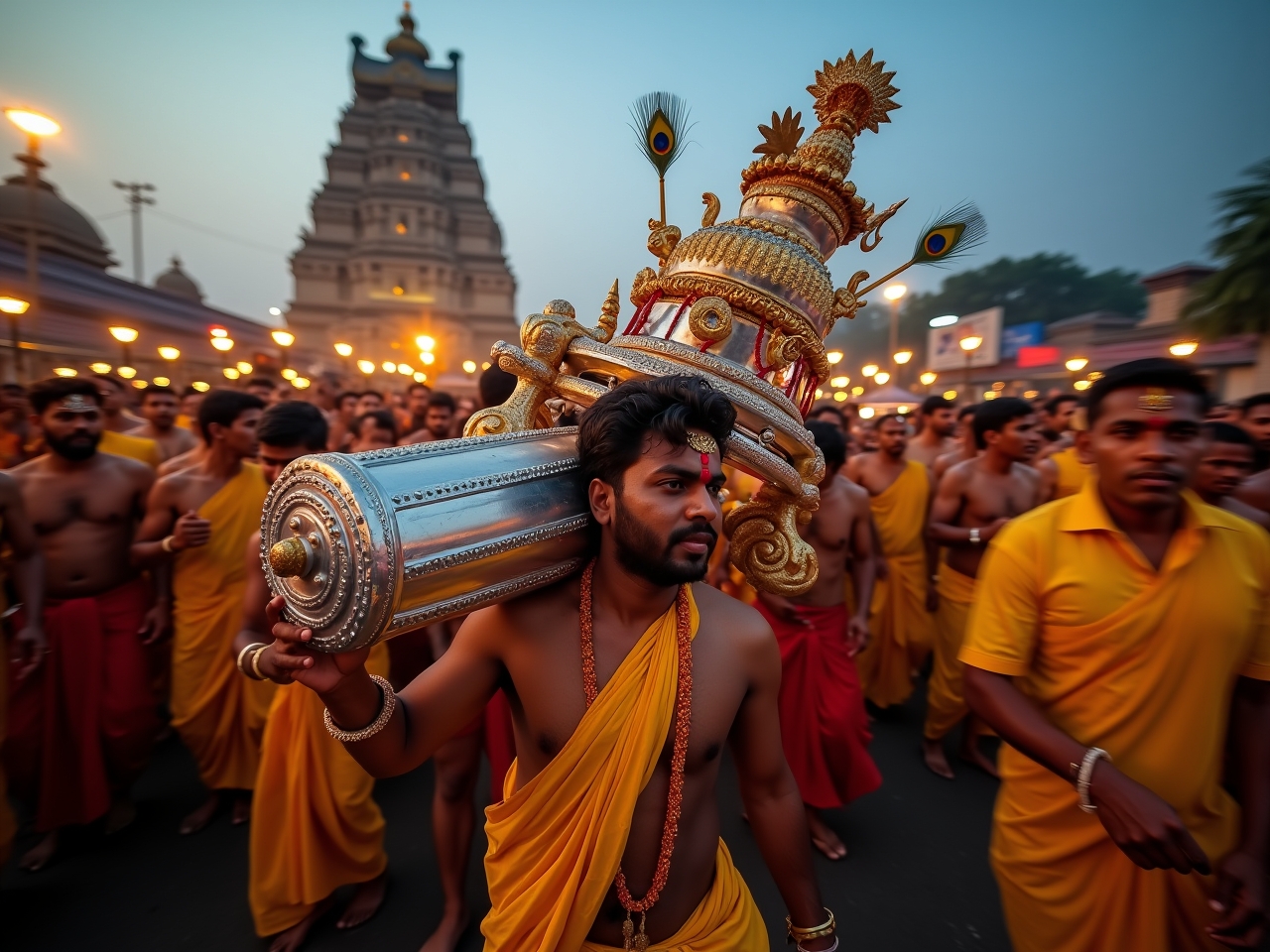
Thai Pusam
Celebrated in the Tamil month of Thai (January-February), commemorating the day Parvati gave Murugan the Vel to defeat Surapadma. Devotees carry kavadis (ornate frames) and pierce their bodies as acts of devotion.
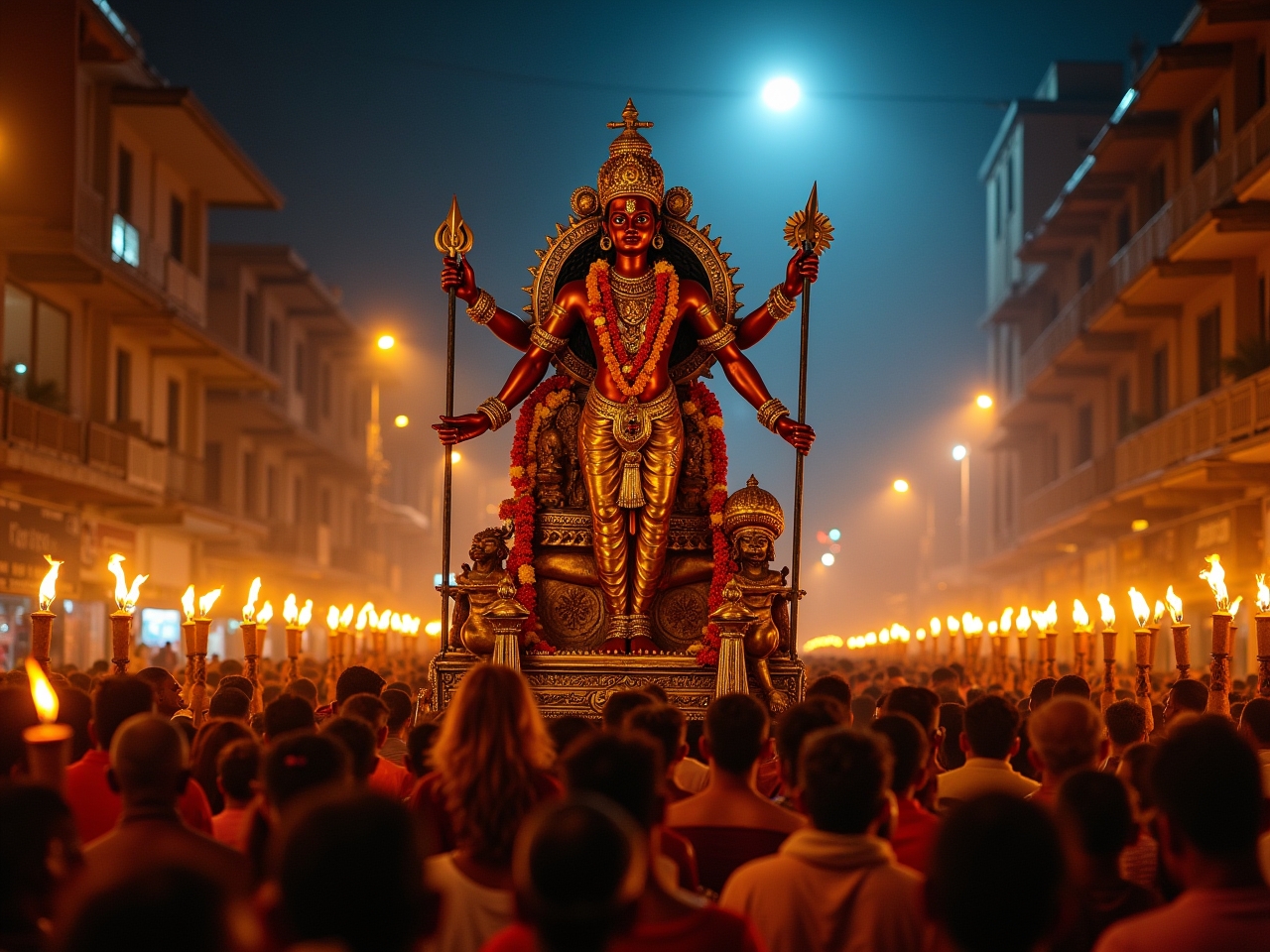
Skanda Sashti
Celebrated in the month of Aippasi (October-November), marking the six-day battle between Murugan and Surapadma. The sixth day (Sashti) celebrates Murugan's victory.
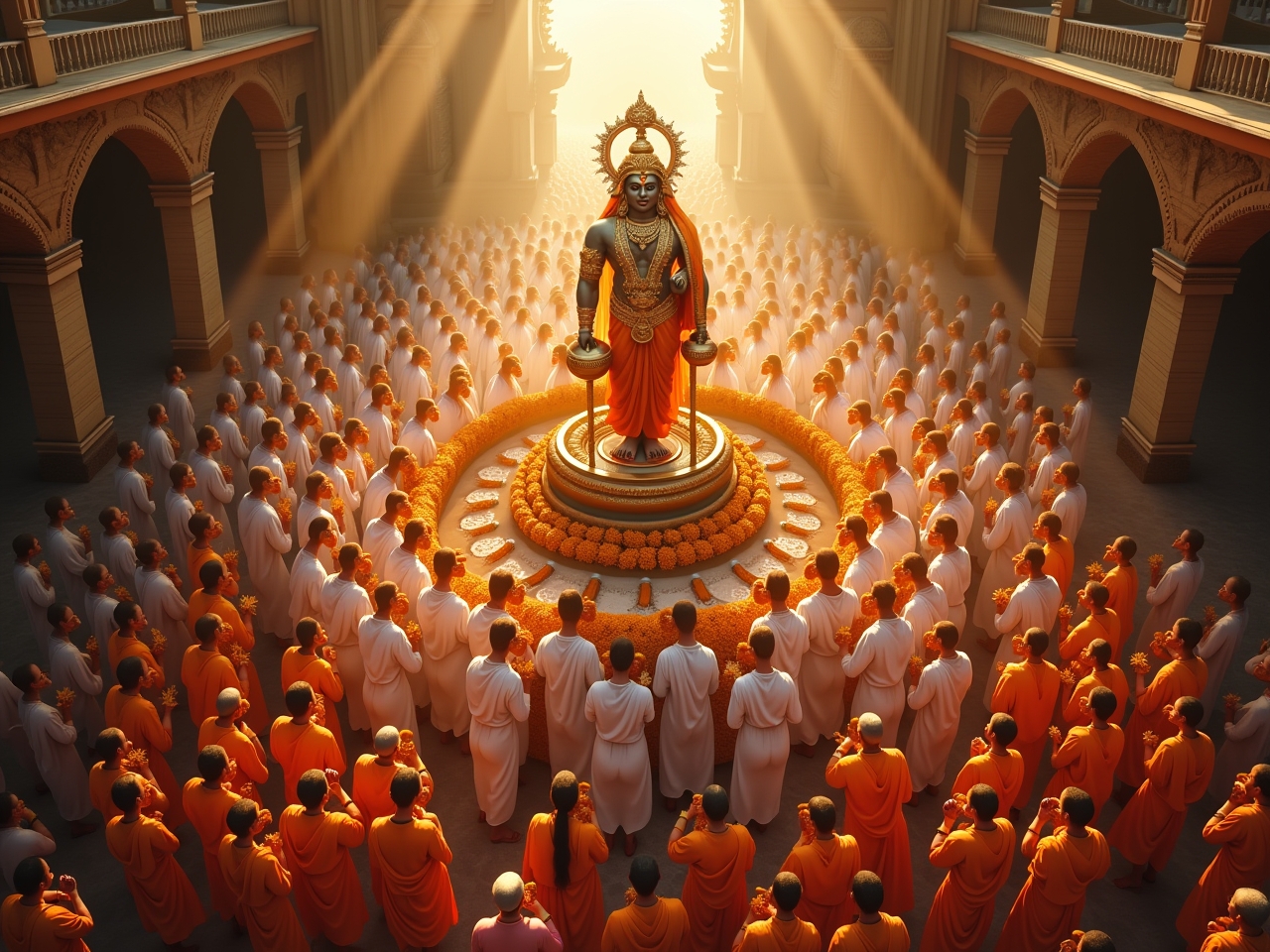
Vaikasi Visakam
Celebrated in the month of Vaikasi (May-June), believed to be Murugan's birthday. Special prayers and processions are held in all Murugan temples.
